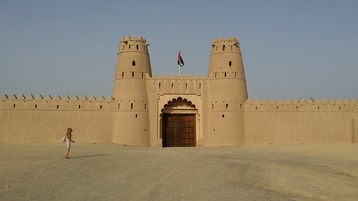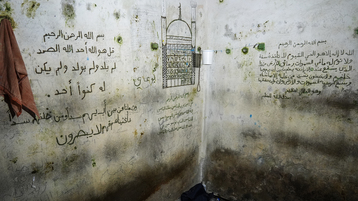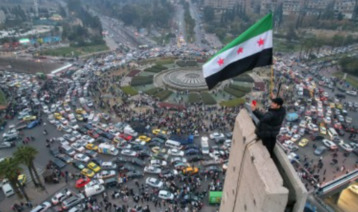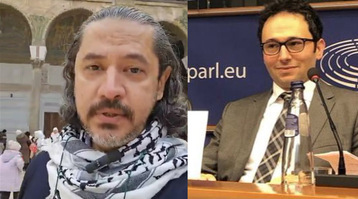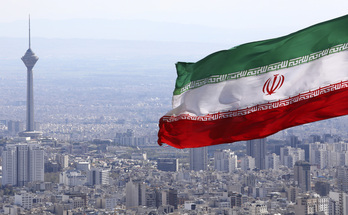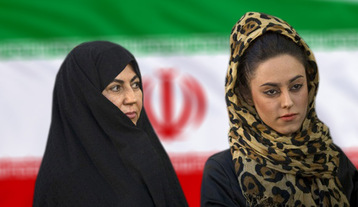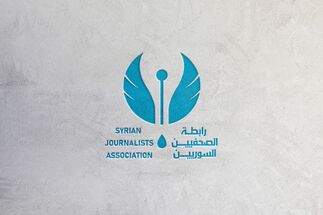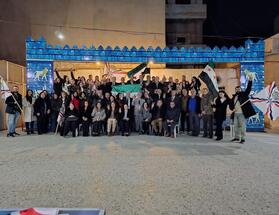-
Are Iran’s Presidential elections democratic or a just charade?
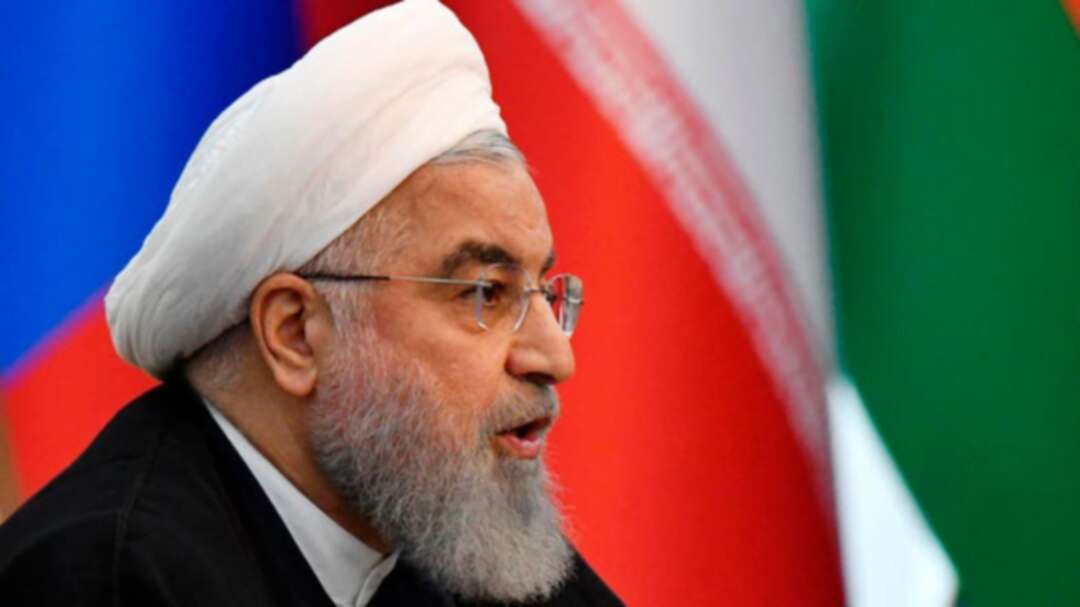
The vast majority of Iranians are struggling with poverty, unemployment and skyrocketing prices, with more than 60 million of Iran’s 82 million population living below the poverty line, and millions left to fend for themselves for their most basic necessities of life. The value of Iran’s currency has decreased 3,500 times compared to its value before the 1979 revolution. In 2020, Iran’s currency became the least valuable in the world, after Venezuela. Social uprisings, rallies, and protests by the people of Iran regarding their poor living conditions and lack of civil liberties are daily occurrences throughout the country.
Meanwhile, the Iranian regime has increased all its repressive measures, such as arbitrary arrests, cracking down on rallies and executions, to prevent another nationwide protest similar to the one in November 2019. Just recently, on 23 February, the regime’s Revolutionary Guards killed dozens of Baluch people in the city of Saravan. Considering the above, it can be said that the Iranian society is very much ready for an overwhelming change. Iran’s 11th presidential election since the anti-monarchical revolution of 1979 is fast approaching, for which the people’s participation is of crucial importance to the regime.
In a recent speech, Khamenei referred to the presidential elections as a cure for all Iran’s social and economic problems and promised that the country’s problems would be solved by installing a young hardline government. In a meeting on 21 February with provincial governors of Iran, including the governor of the northwestern province of Ardabil, Iran’s Interior Minister, Rahmani Fazli said the credibility and prestige of the regime depended on the upcoming elections. Furthermore, most Friday prayer sermons are calling for a large outcome for elections. By showcasing the people’s participation in the so-called elections, the regime wants to legitimize its dictatorship.
After years of dictatorship by the Shah, in 1979 the people of Iran decisively rose up, brought the Shah’s monarchy to an end and hoped for a better future. But instead, they had to face another dictatorship, much more brutal than before.
Unlike the Shah, the clerical regime does actually hold presidential elections every four years, to give itself an air of democracy and to mimic democratic countries around the world. In the end, a president is elected. But what really goes on? Do the people really elect the president, and does he possess any real authority and autonomy?
In the last 42 years, from the very first elections, it became clear that in practice the person who has the real power and control of Iran’s government is the Supreme Leader and those affiliated with him. In Iran, elections are carried out under the close supervision of the Supreme Leader. The candidates must be approved by a body called the Guardian Council, affiliated with the Supreme Leader. That means only those candidates who are completely dedicated to the Supreme Leader and his leadership and policies are going to be approved by the Guardian Council.
The Guardian Council consists of 12 members, six of whom are “Faqih” and are directly elected by the Supreme Leader. The other six “jurists” are nominated by the head of the Judiciary, who the Supreme Leader appoints. This means that, in fact, all 12 members of the Guardian Council are directly or indirectly appointed by the Supreme Leader in order to engineer his wishes in the presidential elections and elect the candidates he wants from the ballot box. In this way, even those who were once part of this government’s leadership but refused to surrender to the Supreme Leader due to their desire for power, have been disqualified and no longer allowed to participate in the elections. As a prime example, Hashemi Rafsanjani, who was himself the head of government, serving two terms as president and two terms as speaker, was disqualified from running in the 2013 elections due to a dispute with Supreme Leader Ali Khamenei. Similarly, Ahmadinejad, who was president for two terms, was not allowed to run again in the 2017 elections. These, and others who were also disqualified, displayed their disagreements with the Supreme Leader in various ways. The conflict was always about receiving a share of the power. Those individuals who did not comply with the Supreme Leader were axed from their candidacy in the upcoming elections.
But, since the president and his government take charge of controlling the country’s finances, there is always competition and war between different factions of the regime, even though they are all in fact affiliated with the Supreme Leader.
Each side wants to have a firmer grip on the country’s wealth and wants to gain the leverage on obtaining more sources of wealth. The candidates themselves often accuse each other of looting, theft, and corruption, with thefts often amounting to several hundred million dollars. Once the elections are over, the same people who were accusing each other of theft and corruption come together, form the government, and it seems they have by then reached a deal to control various institutions after the elections by dividing power among themselves. For example, there were several final candidates in the previous election, including former President Rouhani, Qalibaf, former Parliament Speaker and Raeisi, Chief Justice. In one of the debates, Qalibaf’s theft of several hundred million dollars during his tenure in Tehran’s municipality was revealed and mentioned, while Raeisi was revealed to have been one of the main perpetrators of the massacre of political prisoners in 1988. Rouhani pointed to him and said he has done nothing but sentence people to death, imprisonment, and torture during these years. Ironically enough, after the election, Qalibaf was elected as speaker of Iran’s parliament and Raeisi was selected as head of the judiciary by Khamenei. That is, the three main branches of power were divided between these people, and the only ones who did not benefit from the elections were the people of Iran. The regime’s situation has deteriorated so much that there are no political figures remaining in any of the factions of the regime whose corruption and grand thefts have not been exposed. So, during these years, it has been proven to the Iranian people that the presidential election is nothing more than a show and the people’s votes do not count. Election winners are all predetermined and engineered. None of the so-called elected individuals are going to take any step towards the welfare of the people. This system does not allow for a fair election and representation. For example, women, who make up half of the country’s population, are not allowed to run for president. Despite the regime’s efforts and their false promises and propaganda, every election has witnessed lower participation, and many people have boycotted altogether. According to recent polls taken by regime affiliated media, which usually differ greatly from reality by being several times higher than the actual number, the turnout in the upcoming elections is predicted to be 20%. It is clear that the people no longer accept the promises of regime leaders. The overwhelming majority of the people want regime change and the establishment of a secular democratic government where elections are free and democratic.
by Cyrus Yaqubi
Cyrus Yaqubi is a Research Analyst and Iranian Foreign Affairs Commentator investigating the economy of the middle east countries that are relying on the oil revenue and comparing their progress to their ruling system, specially covering a variety of topics about Iran.
You May Also Like
Popular Posts
Caricature
BENEFIT AGM approves 10%...
- March 27, 2025
BENEFIT, the Kingdom’s innovator and leading company in Fintech and electronic financial transactions service, held its Annual General Meeting (AGM) at the company’s headquarters in the Seef District.
During the meeting, shareholders approved all items listed on the agenda, including the ratification of the minutes of the previous AGM held on 26 March 2024. The session reviewed and approved the Board’s Annual Report on the company’s activities and financial performance for the fiscal year ended 31 December 2024, and the shareholders expressed their satisfaction with the company’s operational and financial results during the reporting period.
The meeting also reviewed the Independent External Auditor’s Report on the company’s consolidated financial statements for the year ended 31 December 2024. Subsequently, the shareholders approved the audited financial statements for the fiscal year. Based on the Board’s recommendation, the shareholders approved the distribution of a cash dividend equivalent to 10% of the paid-up share capital.
Furthermore, the shareholders endorsed the allocation of a total amount of BD 172,500 as remuneration to the members of the Board for the year ended 31 December 2024, subject to prior clearance by related authorities.
The extension of the current composition of the Board was approved, which includes ten members and one CBB observer, for a further six-month term, expiring in September 2025, pending no objection from the CBB.
The meeting reviewed and approved the Corporate Governance Report for 2024, which affirmed the company’s full compliance with the corporate governance directives issued by the CBB and other applicable regulatory frameworks. The AGM absolved the Board Members of liability for any of their actions during the year ending on 31st December 2024, in accordance with the Commercial Companies Law.
In alignment with regulatory requirements, the session approved the reappointment of Ernst & Young (EY) as the company’s External Auditors for the fiscal year 2025, covering both the parent company and its subsidiaries—Sinnad and Bahrain FinTech Bay. The Board was authorised to determine the external auditors’ professional fees, subject to approval from the CBB, and the meeting concluded with a discussion of any additional issues as per Article (207) of the Commercial Companies Law.
Speaking on the company’s performance, Mr. Mohamed Al Bastaki, Chairman BENEFIT , stated: “In terms of the financial results for 2024, I am pleased to say that the year gone by has also been proved to be a success in delivering tangible results. Growth rate for 2024 was 19 per cent. Revenue for the year was BD 17 M (US$ 45.3 Million) and net profit was 2 Million ($ 5.3 Million).
Mr. Al Bastaki also announced that the Board had formally adopted a new three-year strategic roadmap to commence in 2025. The strategy encompasses a phased international expansion, optimisation of internal operations, enhanced revenue diversification, long-term sustainability initiatives, and the advancement of innovation and digital transformation initiatives across all service lines.
“I extend my sincere appreciation to the CBB for its continued support of BENEFIT and its pivotal role in fostering a stable and progressive regulatory environment for the Kingdom’s banking and financial sector—an environment that has significantly reinforced Bahrain’s standing as a leading financial hub in the region,” said Mr. Al Bastaki. “I would also like to thank our partner banks and valued customers for their trust, and our shareholders for their ongoing encouragement. The achievements of 2024 set a strong precedent, and I am confident they will serve as a foundation for yet another successful and impactful year ahead.”
Chief Executive of BENEFIT; Mr. Abdulwahed AlJanahi commented, “The year 2024 represented another pivotal chapter in BENEFIT ’s evolution. We achieved substantial progress in advancing our digital strategy across multiple sectors, while reinforcing our long-term commitment to the development of Bahrain’s financial services and payments landscape. Throughout the year, we remained firmly aligned with our objective of delivering measurable value to our shareholders, strategic partners, and customers. At the same time, we continued to play an active role in enabling Bahrain’s digital economy by introducing innovative solutions and service enhancements that directly address market needs and future opportunities.”
Mr. AlJanahi affirmed that BENEFIT has successfully developed a robust and well-integrated payment network that connects individuals and businesses across Bahrain, accelerating the adoption of emerging technologies in the banking and financial services sector and reinforcing Bahrain’s position as a growing fintech hub, and added, “Our achievements of the past year reflect a long-term vision to establish a resilient electronic payment infrastructure that supports the Kingdom’s digital economy. Key developments in 2024 included the implementation of central authentication for open banking via BENEFIT Pay”
Mr. AlJanahi concluded by thanking the Board for its strategic direction, the company’s staff for their continued dedication, and the Central Bank of Bahrain, member banks, and shareholders for their valuable partnership and confidence in the company’s long-term vision.
opinion
Report
ads
Newsletter
Subscribe to our mailing list to get the new updates!

